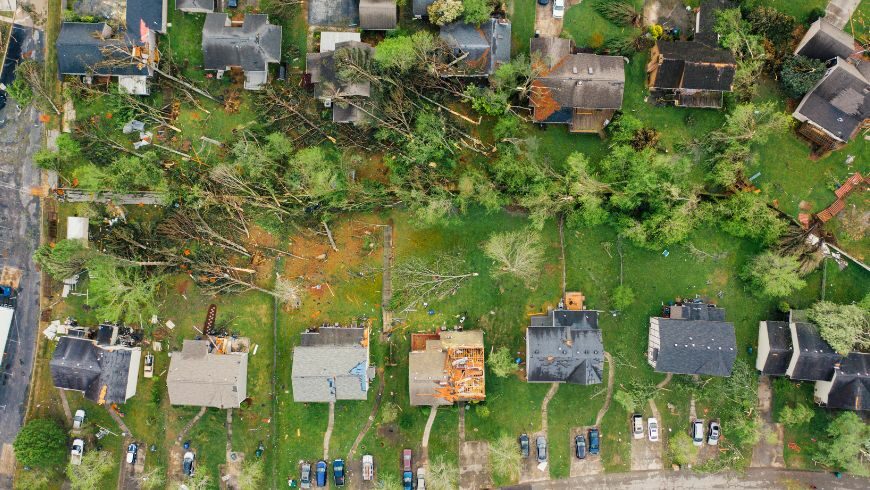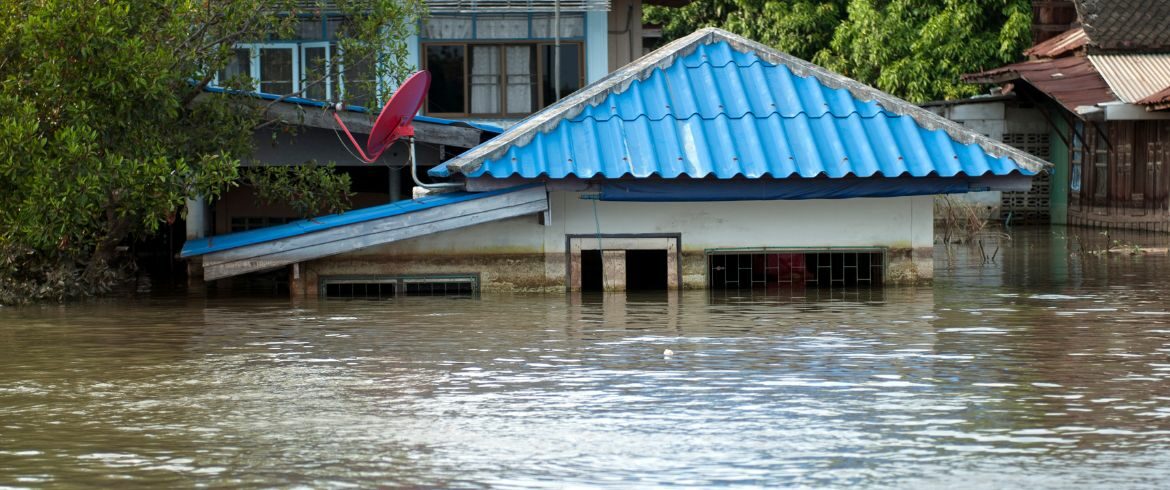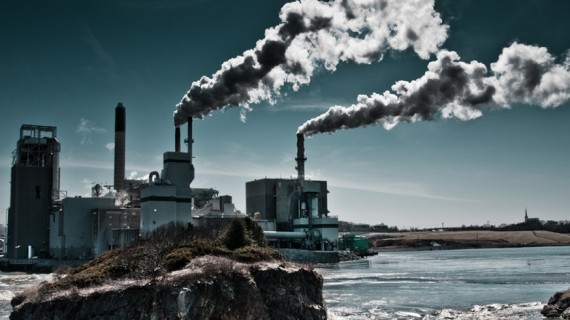The Impact of Climate Change on the U.S. Real Estate Market: A $1.47 Trillion Risk
A recent study conducted by First Street has revealed an alarming statistic for the U.S. real estate sector: climate change could erase $1.47 trillion in property value over the next 30 years. This scenario threatens to radically transform the housing market, affecting millions of homeowners and reshaping urban growth dynamics.
Currently, the U.S. residential real estate market is valued at approximately $50 trillion. However, the consequences of climate change—rising insurance costs and shifting consumer preferences—are putting this sector at risk. The report highlights a feedback loop in which climate risks drive people to relocate to less vulnerable areas, thereby altering property values and community growth.
Regions most exposed to extreme climate events are experiencing exponential increases in insurance premiums, in some cases surpassing the cost of mortgages themselves. This phenomenon is particularly evident in Sun Belt states such as Florida, Texas, and California, which have absorbed 40% of the $2.8 trillion in damages caused by natural disasters since 1980.

Cities Most Affected by Rising Insurance Costs
The First Street study identified five metropolitan areas facing the largest increases in insurance premiums:
- Miami
- Jacksonville
- Tampa
- New Orleans
- Sacramento
These cities, historically attractive due to their location and climate, are becoming increasingly expensive to live in due to their growing vulnerability to natural disasters.
Internal Migration and Community Abandonment
The report predicts that by 2055, approximately 55 million Americans will voluntarily relocate to areas less exposed to climate risks. This large-scale movement could have devastating effects on over 70,000 neighborhoods across the country, leading to declining home values and the abandonment of entire communities.
Some cities could reach a “point of no return,” where population decline and rising costs make living in those areas unsustainable, transforming them into economically unviable places for homeowners.

The Urgency for Adaptation and Urban Planning
According to the Intergovernmental Panel on Climate Change (IPCC), efforts to adapt to climate change remain insufficient. The construction of infrastructure such as dams and protective barriers, if not properly designed, could even worsen climate impacts.
Currently, only 7% of public climate funding is invested in adaptation measures. This number must increase drastically to ensure communities can withstand future climate shocks. Solutions such as reforestation, ecosystem restoration, and resilient urban planning need to be implemented on a large scale and with urgency.

Conclusion
Climate change is no longer a future threat but a present reality already affecting the real estate market and communities in the U.S. Investors, local governments, and citizens must act quickly to address these risks and adopt sustainable strategies that can mitigate economic losses while protecting homes and cities for future generations. Only through forward-thinking planning and significant investment in climate adaptation can an unprecedented real estate crisis be averted.
Each of us has a role to play in the fight against climate change. We can reduce our ecological footprint by adopting more sustainable lifestyles. Acting now means protecting our future and that of the generations to come. The time to make a difference is now!




